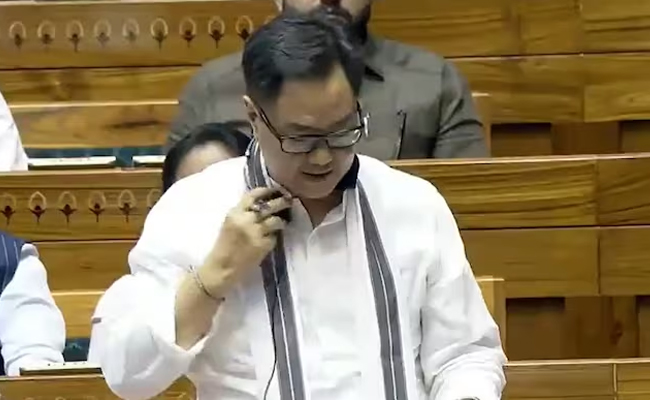
New Delhi: Union Minister for Minority Affairs Kiren Rijiju announced on Wednesday that the Waqf (Amendment) Bill, 2025, intends to repeal Section 40 of the 1995 Act, which had previously given Waqf Boards authority over property decisions. Rijiju labeled this section as the “most draconian law,” stating that it has now been abolished.
He explained that Section 40 empowered Waqf Boards to declare any property as Waqf, effectively transferring ownership from individuals to the board, which made the designation nearly irreversible. This irrevocability has sparked numerous disputes, including controversies over the Bengaluru Eidgah ground and the Surat Municipal Corporation building, both claimed as Waqf properties.
Previously, disputes arising from Section 40 could only be appealed before a Waqf Tribunal, whose decisions were final and unchallengeable in court. Rijiju confirmed that this significant flaw will be addressed in the upcoming amendments, which, once ratified by Parliament, will allow parties unsatisfied with tribunal rulings to appeal to higher courts. Appeals can be filed in the high court within 90 days, and the district collector will be responsible for verifying the authenticity of registration applications.
The Union Minority Affairs Minister presented the Waqf (Amendment) Bill, 2025, proposed by a Joint Parliamentary Committee, in the Lok Sabha for consideration and passage. The bill aims to enhance the management of Waqf properties through technology, streamline processes, and improve transparency.
After introducing the bill, Rijiju raised pertinent questions about the underutilization of Waqf properties for education, healthcare, and skill development for impoverished Muslims, emphasizing that if the government under PM Modi is committed to improving the lives of poor Muslims, objections should be reconsidered. He also noted that national infrastructure and defense land are for public use, contrasting them with Waqf properties, many of which have become private.
